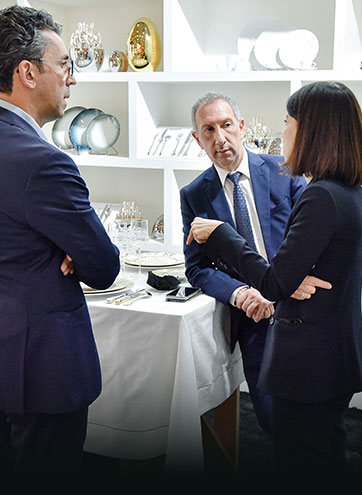Why local furniture is a smart investment for South Africa’s hospitality industry
Discover why sourcing locally made furniture is a smart, sustainable choice for South Africa’s hospitality industry – offering quality, customisation and faster delivery while supporting jobs, skills development and a more resilient supply chain.
From boutique guesthouses to luxury lodges, the spaces we create in hospitality shape the guest experience. And at the heart of that experience lies something deeply tactile and visual: the furniture. The South African Furniture Initiative (SAFI) is calling on hospitality professionals to consider not just how their spaces look – but who they support when furnishing them.
In an industry constantly navigating change, supply chain disruption and evolving guest expectations, SAFI argues that buying locally made furniture is not only the most practical choice, but a strategic one.
Supporting local brings hospitality gains
“When hotels and hospitality businesses choose South African furniture, they’re choosing quality, faster lead times, and direct engagement with makers who understand the local market,” says Greg Boulle, CEO of SAFI. “Just as important, they’re supporting jobs, skills, and an industry with the potential to make South Africa a global furniture design destination.”

Greg Boulle, CEO of SAFI
South Africa’s furniture sector has long been a significant employer, especially among artisans, upholsterers and woodworkers. But in recent years, the influx of cheaper imports has chipped away at local demand. SAFI and the Department of Trade, Industry and Competition (the DTIC) recently commissioned a study to help reverse that trend. While employment across the broader furniture industry has declined, formal manufacturing jobs are slowly stabilising – proof that with the right support, the industry can thrive again.
For hospitality buyers, this presents an opportunity. “By investing in locally produced furniture, hotels and resorts can help reawaken a vital manufacturing ecosystem – while benefiting from custom solutions and shorter supply chains,” says Dr Martin Cameron, economist and Managing Director at Trade Research Advisory.

Dr Martin Cameron, Economist and Managing Director at Trade Research Advisory.
Resilience starts with local supply chains
In a fast-moving and design-driven industry like hospitality, procurement delays can derail an entire project. Yet businesses often find themselves at the mercy of global supply chains –where fluctuating exchange rates, shipping backlogs and limited product adaptability can lead to missed deadlines and mounting costs.
“Furniture imports come with significant risks – unpredictable lead times, pricing instability and reduced customisation options,” explains Dr Cameron. “In contrast, sourcing locally gives hospitality businesses greater control, faster turnaround and the flexibility to meet specific project needs. It also enables alignment with growing sustainability expectations.”
When you’re working to a launch date or planning a seasonal upgrade, a six-week local delivery versus a 12-week international wait isn’t a small detail – it’s a critical advantage.
Designed here, made here, loved here
Customisation is key in hospitality design, where mood, materiality and brand storytelling come together. Imported furniture may not always reflect local styles, sizing or climate durability. Local makers, on the other hand, offer bespoke pieces that reflect African aesthetics and are made for local conditions.
Beyond design appeal, there’s also the question of impact. “Every imported chair is a missed opportunity for job creation,” says Dr Cameron. “By driving demand locally, we allow workshops to invest in modern tooling, apprenticeships and R&D – ultimately making the whole industry more competitive on a global scale.”
From procurement to purpose
Sustainable procurement is increasingly top of mind for hospitality brands. Choosing South African-made furniture reduces emissions from long-haul shipping and supports businesses that are more likely to adopt sustainable practices – especially when backed by initiatives like SAFI.
And the benefits don’t end at purchase. Local suppliers can offer ongoing maintenance, replacements and faster customer support – crucial for busy hotels and lodges that can’t afford downtime.
Building a global brand, locally
South Africa has the talent, resources, and capacity to grow its furniture exports. But that growth starts with demand at home. SAFI, in partnership with government and academia, is working to position the country as a hub for high-quality, sustainably produced furniture – both for domestic use and global markets.
“The hospitality industry plays a pivotal role in this,” says Boulle. “By sourcing locally, hotels are not just buying furniture – they’re contributing to a national vision of economic resilience, job creation and world-class design.”
Time to rethink your sourcing strategy?
For South African hospitality professionals, choosing local furniture is more than just a procurement decision – it’s an investment in the country’s economy, job market and design legacy.
“If we want to rebuild our industry and create sustainable jobs, we need to make buying local a priority,” Boulle concludes. “Every purchase makes a difference, and together, we can strengthen South Africa’s furniture sector for generations to come.”
To find out more or to connect with certified local furniture manufacturers, visit http://www.southafricanfurnitureinitiative.co.za.


